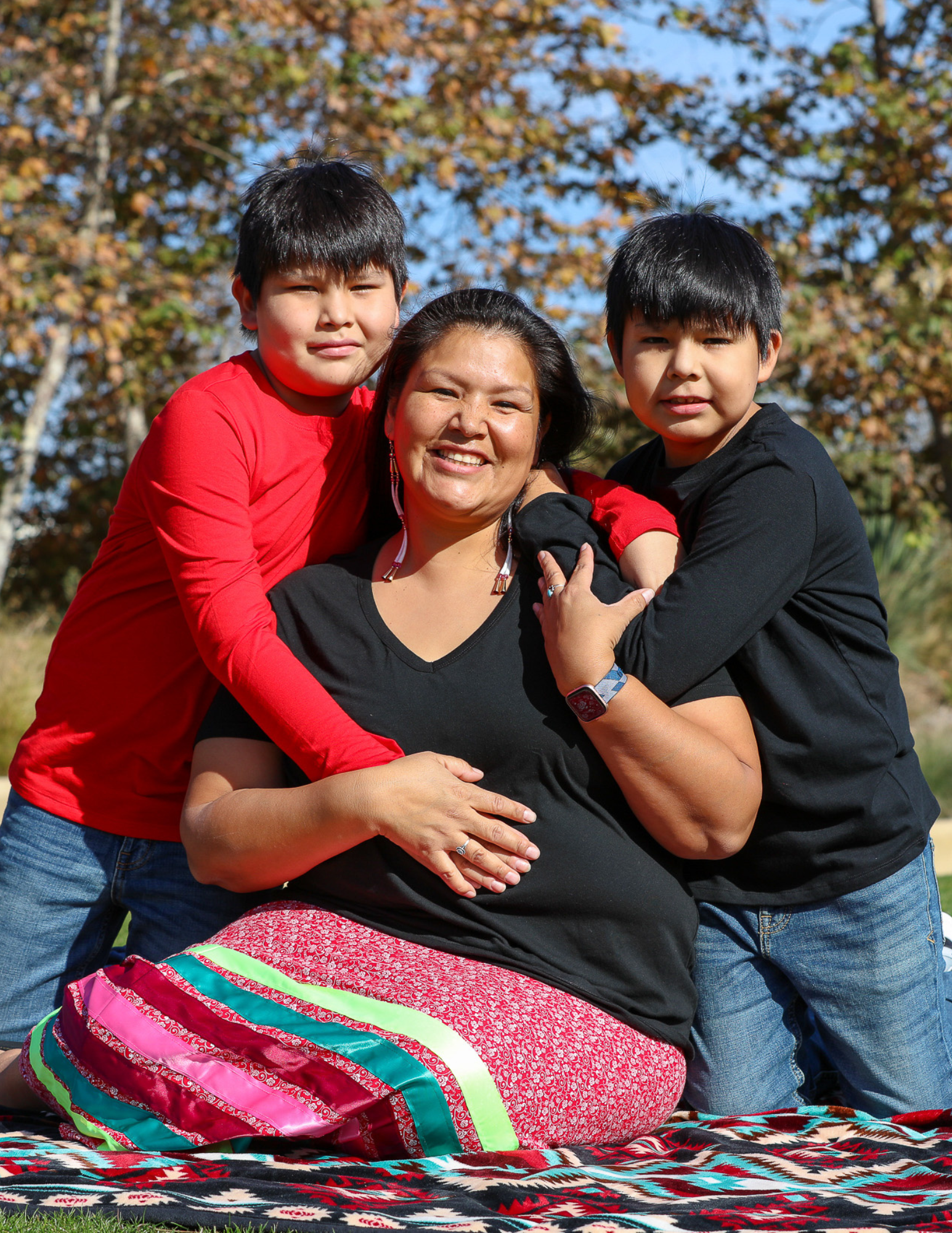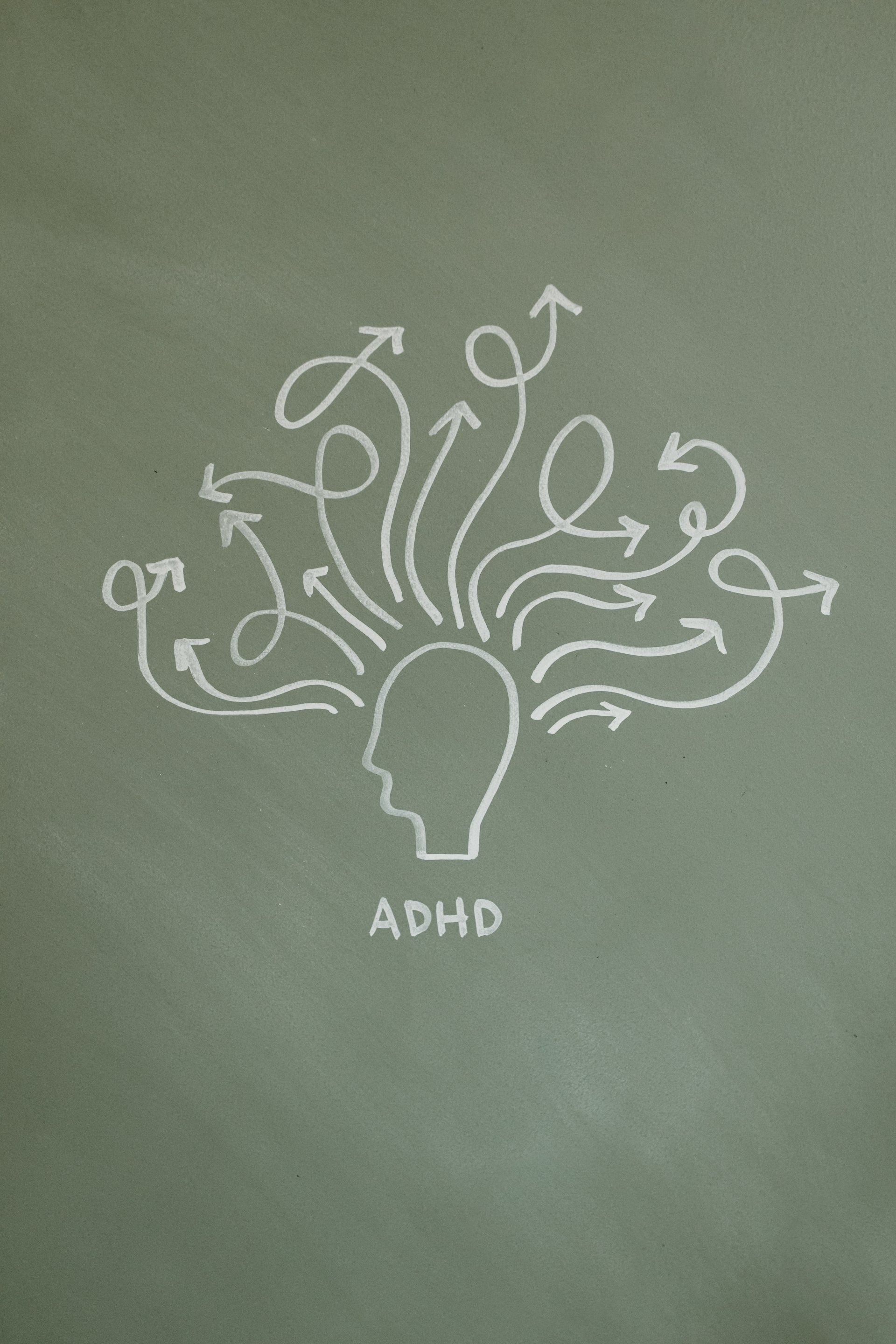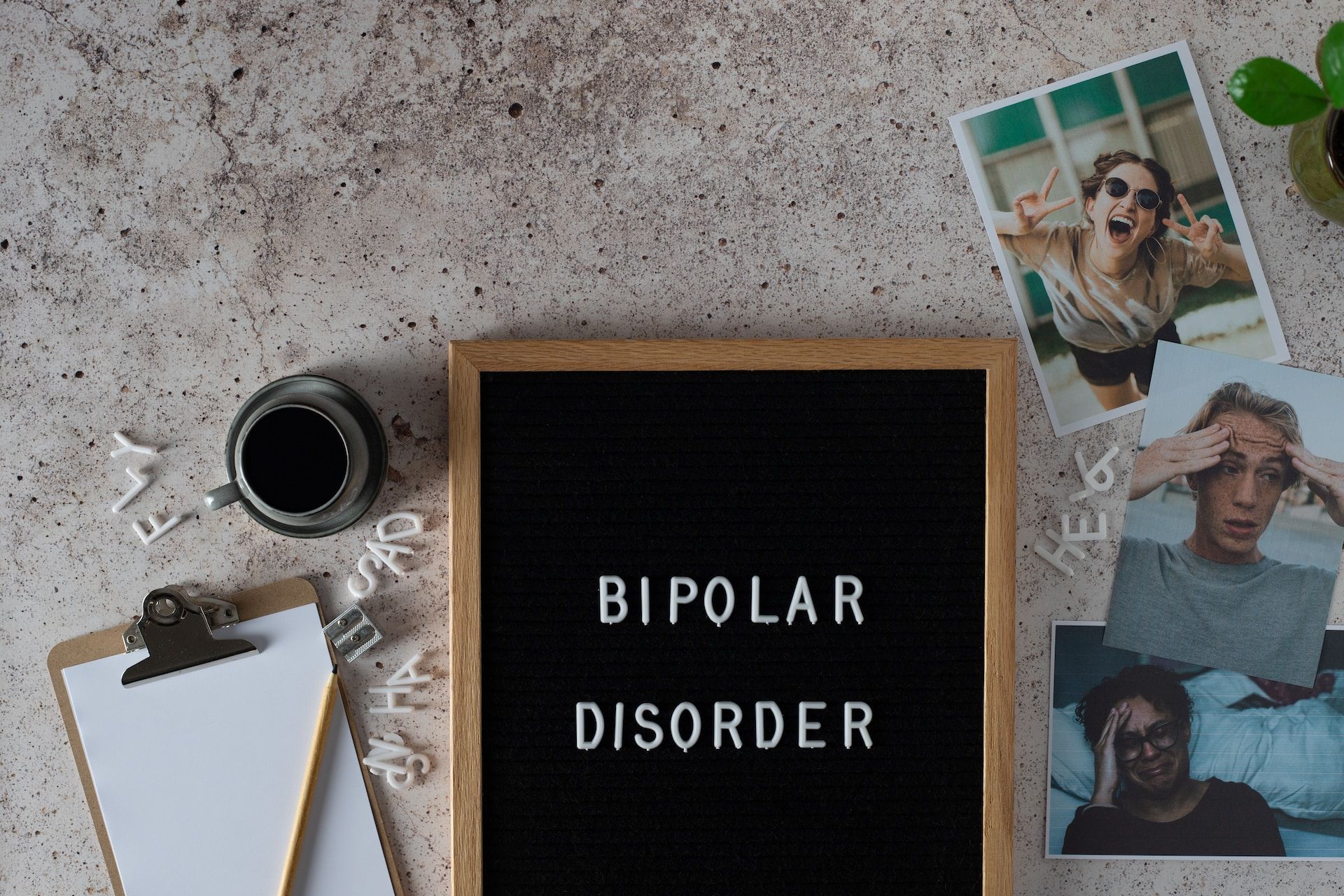Services
We specialize in treatment for
- ADHD
- bipolar disorder
- anxiety
- depression
- PTSD
- substance use disorders
- behavioral concerns in both adults & children.
We're dedicated to offering compassionate and personalized mental health care, in a private setting, so individuals can live their lives to the fullest without the burden of mental health challenges.
Depression

Depression is a mood disorder that causes persistent feelings of sadness and loss of interest in activities a person enjoys. Depression affects how an individual feels, thinks, and can make it difficult to manage a person’s day-to-day activities and relationships.

Some signs and symptoms of depression includes feeling sad or having depressed mood, changes in appetite, difficulty sleeping or oversleeping, decreased energy, feeling irritable, difficulty concentrating, feeling hopelessness or worthlessness.

Treatment can consist of behavioral modifications, therapy, and medications.
Depression

What is Depression
Depression is a mood disorder that causes persistent feelings of sadness and loss of interest in activities a person enjoys. Depression affects how an individual feels, thinks, and can make it difficult to manage a person’s day-to-day activities and relationships.
Signs & Symptoms
Some signs and symptoms of depression includes feeling sad or having depressed mood, changes in appetite, difficulty sleeping or oversleeping, decreased energy, feeling irritable, difficulty concentrating, feeling hopelessness or worthlessness.
Treatment
Treatment can consist of behavioral modifications, therapy, and medications.
anxiety

Occasional anxiety is a normal part of life. However, people with anxiety disorders have
worries or fears that are too intense and interferes with their daily activities.

This ongoing worry and tension may be accompanied by restlessness, increased heart rate, feeling on edge, difficulty concentrating, muscle tension or problems sleeping.

Treatment can consist of behavioral interventions, therapy, and medications.
Anxiety

What is Anxiety
Occasional anxiety is a normal part of life. However, people with anxiety disorders have
worries or fears that are too intense and interferes with their daily activities.
Symptoms
This ongoing worry and tension may be accompanied by restlessness, increased heart rate, feeling on edge, difficulty concentrating, muscle tension or problems sleeping.
Treatment
Treatment can consist of behavioral modifications, therapy, and medications.
adhd

ADHD is a developmental disorder with an ongoing pattern of inattention, hyperactivity, and/or impulsivity.

The symptoms of ADHD can interfere significantly with an individual’s ability to do well in school or at work and can significantly impact relationships. ADHD begins in childhood and can continue into the teen years and adulthood.

Treatment consists of medications and behavioral modifications.
ADHD

What is ADHD
ADHD is a developmental disorder with an ongoing pattern of inattention, hyperactivity, and/or impulsivity.
Signs & Symptoms
The symptoms of ADHD can interfere significantly with an individual’s ability to do well in school or at work and can significantly impact relationships. ADHD begins in childhood and can continue into the teen years and adulthood.
bipolar

Bipolar disorder is a mental health condition that causes sudden and intense shifts in a person’s mood, energy, and ability to think clearly and act rationally. These mood changes differ from the typical ups-and-downs most people experience.

People with bipolar experience extreme highs with decreased need for sleep (mania) to extreme lows with feelings of sadness and hopelessness (depression). Symptoms impact multiple areas of life including your relationships and ability to maintain functioning at school or work.
Symptoms of bipolar can include mood swings, depression, elevated mood, irritability, risk taking activities, and self-harm.

Treatment consists of medications to balance mood.
Bipolar

What is Bipolar
Bipolar disorder is a mental health condition that causes sudden and intense shifts in a person’s mood, energy, and ability to think clearly and act rationally. These mood changes differ from the typical ups-and-downs most people experience.
Signs
People with bipolar experience extreme highs with decreased need for sleep (mania) to extreme lows with feelings of sadness and hopelessness (depression). Symptoms impact multiple areas of life including your relationships and ability to maintain functioning at school or work.
Symptoms
Symptoms of bipolar can include mood swings, depression, elevated mood, irritability, risk taking activities, and self-harm.
behavioral concerns in children

Mental health issues manifest differently in children than they do in adults. Children who are experiencing anxiety, depression, PTSD, ADHD, and other mental health concerns can often display behavioral issues such as sleep disturbance, defiance, hurting others, excessive anger, and tantrums. This can make it difficult for them to function well at school, in relationships, and at home.

Symptoms may include sleep problems, bathroom accidents, school refusal, defiance, hurting other people or animals, and tantrums.

Treatment consists of therapy and medications.
behavioral concerns in children

What are Behavioral Concerns
Mental health issues manifest differently in children than they do in adults. Children who are experiencing anxiety, depression, PTSD, ADHD, and other mental health concerns can often display behavioral issues such as sleep disturbance, defiance, hurting others, excessive anger, and tantrums. This can make it difficult for them to function well at school, in relationships, and at home.
Signs & Symptoms
Symptoms may include sleep problems, bathroom accidents, school refusal, defiance, hurting other people or animals, and tantrums.
PTSD

Post-traumatic stress disorder (PTSD) may develop after experiencing or witnessing an
upsetting event (trauma). Types of trauma that can lead to PTSD include accidents, physical injuries, any kind of abuse, violence, or natural disasters. PTSD can occur shortly after a traumatic event or may happen weeks later.

Symptoms include flashbacks, nightmares, unwanted thoughts and memories about the event, heightened reactions, anxiety, and avoidance of situations that may trigger memories of the event. PTSD can cause significant distress and affect an individual’s daily functioning.

Treatment consists of therapy and medications to manage symptoms.
PTSD

What is PTSD
Post-traumatic stress disorder (PTSD) may develop after experiencing or witnessing an
upsetting event (trauma). Types of trauma that can lead to PTSD include accidents, physical injuries, any kind of abuse, violence, or natural disasters. PTSD can occur shortly after a traumatic event or may happen weeks later.
Signs & Symptoms
Symptoms include flashbacks, nightmares, unwanted thoughts and memories about the event, heightened reactions, anxiety, and avoidance of situations that may trigger memories of the event. PTSD can cause significant distress and affect an individual’s daily functioning.
We can help you live your life to the fullest.
**In the event of an emergency or life-threatening situation during or outside our normal business hours, please call 911 or go to the nearest emergency department. Please DO NOT delay care by waiting for a response from our office. We DO NOT offer emergency or crisis care. **
Call Us: 505-591-0636
Email: kaylene@mymindfulmeds.com
Address: 3510 E Messina Dr. Farmington, NM 87402
